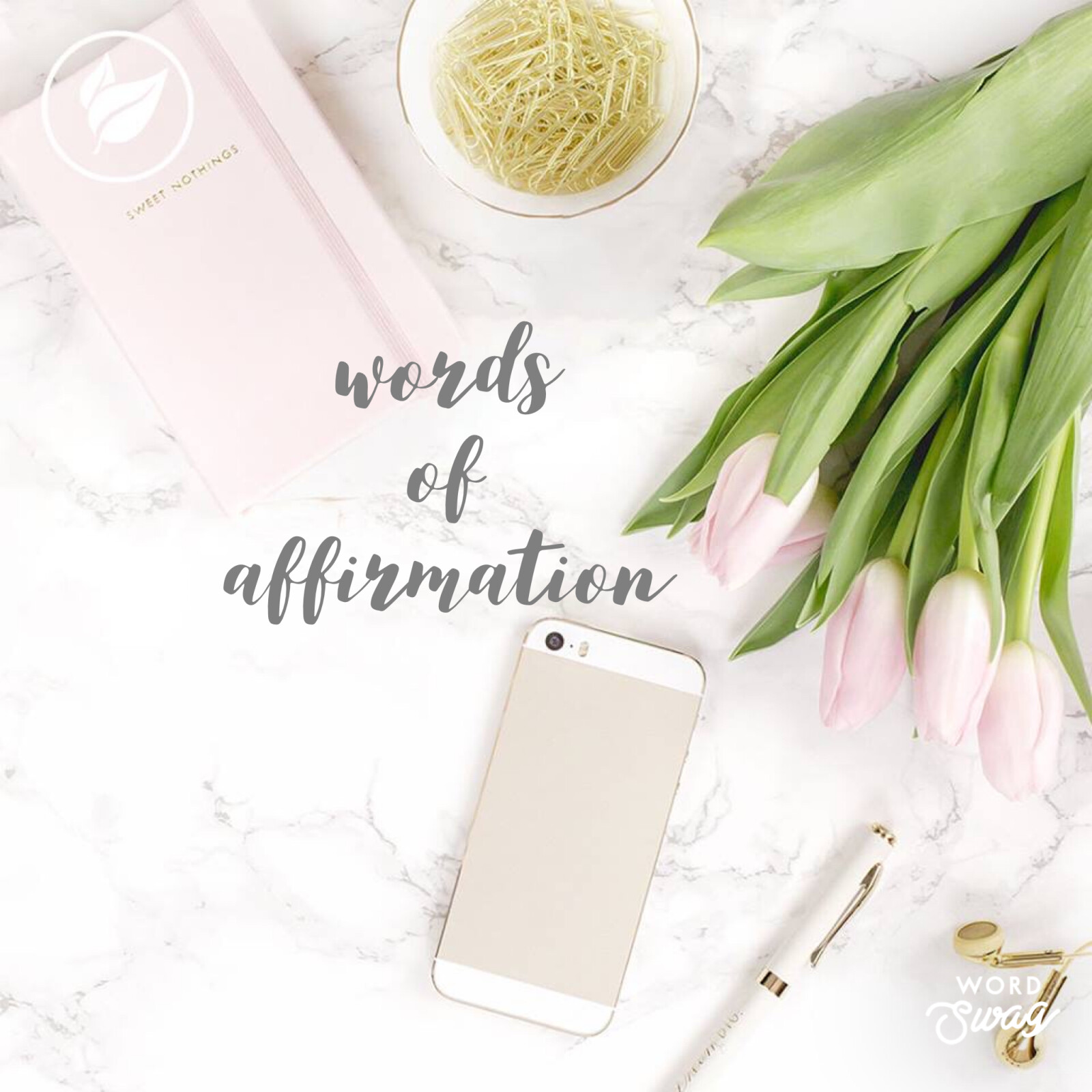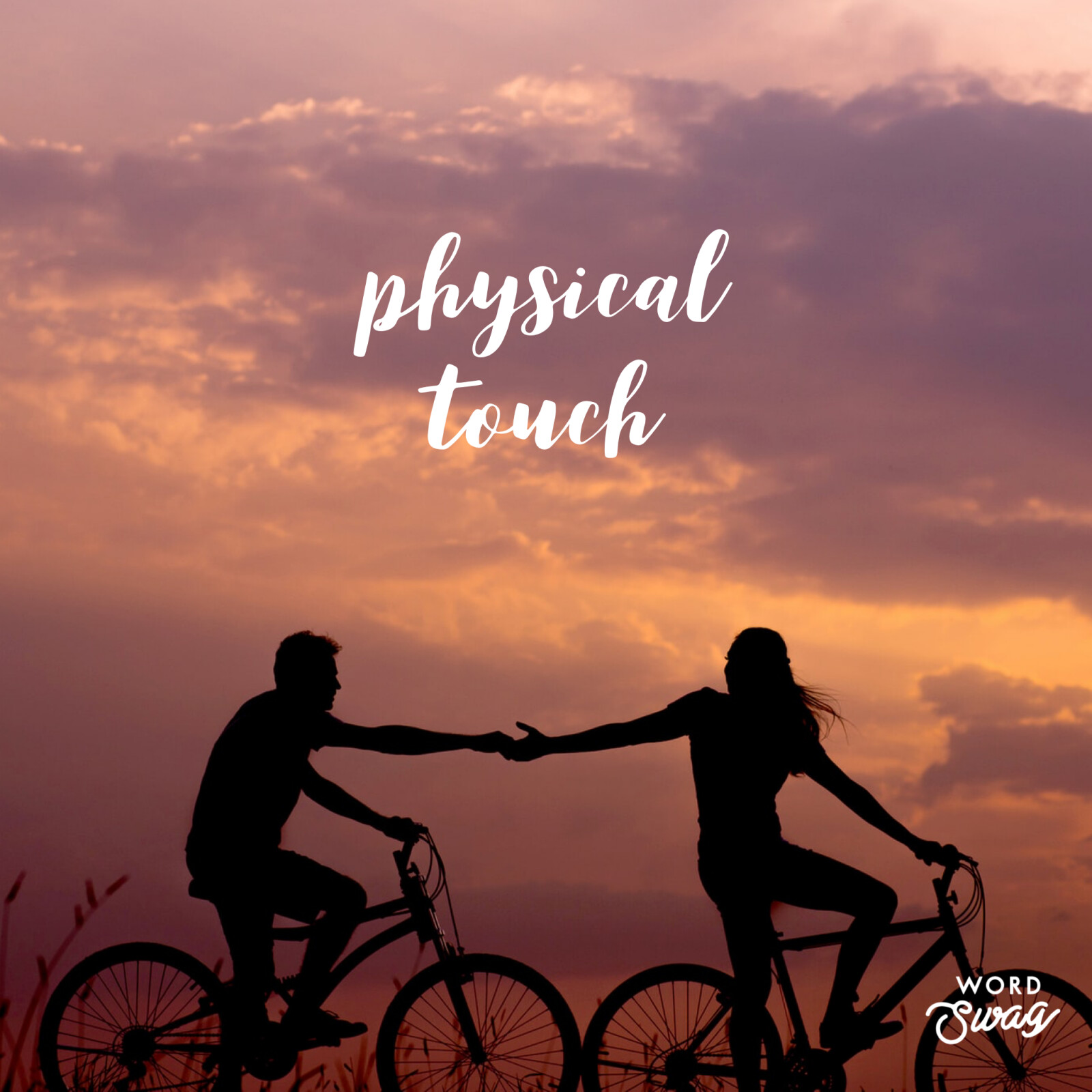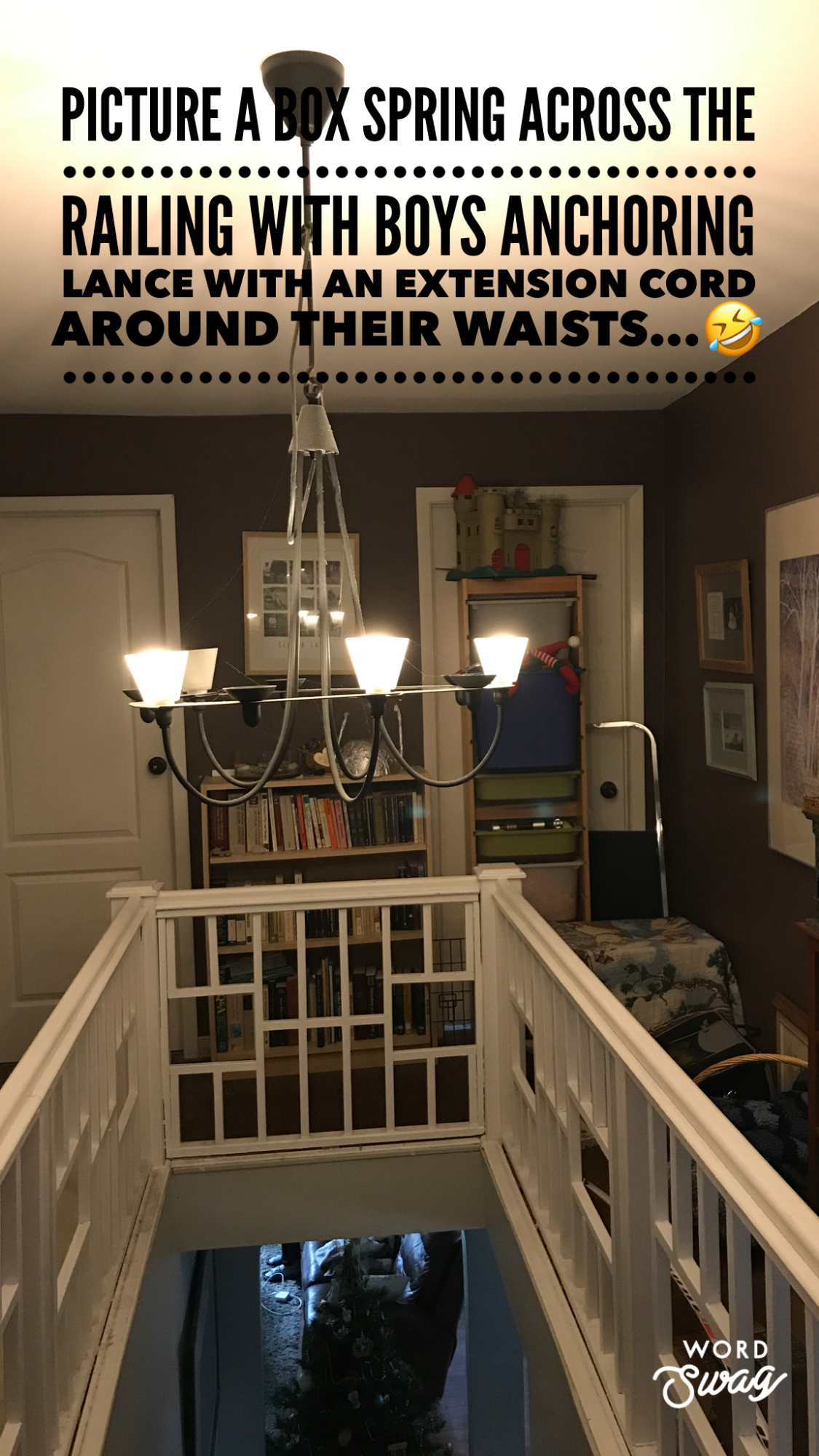
Let's talk QUALITY TIME:
Undivided attention, active listening (that's all the empathy sounds and little feedback words that come so naturally to some of our favourite people), doing things together, making it a priority to be together even if its getting a job done as a team, and understanding dialogue is the fuel to fill the love tank of anyone with this preference.
My son, Andrew is expressive and verbal and used to follow me around the house talking at me all day. I had never experienced this before. I was overwhelmed by the constant incoming noise. As an introvert I try to dial down external stimuli to leave room for processing my inner world - thoughts, reflections, visions, connections. But in order to love Andrew, I needed to make sure he felt heard. Thankfully in homeschool we had daily undivided time to read and talk about the world together. This became a favourite time for both of us.
When Lance and I started dating, I’d get anxious when I saw how full his calendar was. I would only relax when I saw a L&P date day coming up. I could handle our individuality, but in order to feel loved, I had to feel like time together was a priority.
To Speak the Love Language of Quality Time:
+ Set Dates: I love gifts of coupons with ideas of things we can do together. Take time to plan meaningful dates.
+ Share childhood memories to really understand your person - tell shared stories and laugh together!
+ Relax together doing something one or both of you enjoy.
+ Make a list of things you would enjoy doing together.
A Homeschool Mom of eight children made her New Year's Resolution to spend at least 5 minutes of everyday with each child giving her full attention - not just talking while she got a task done from her list. That is the simple gift of quality time!
Incorporate Essential Oils:
Help your loved one identify their mood or needs and then choose a diffuser blend together to create a safe, supportive atmosphere to share heart conversations. Allow the fragrance to calm and focus you so that you can be fully present. Experiment together to find your signature fragrance that will recall these intimate sharing times anytime you smell it! You are creating your own special memory scent!

Love is the soil out of which healthy life is supported and grows into fullness. It is essential for emotional health. Unconditional love becomes a constant source of security and significance. Without it the soul starves.
Message of unconditional love: “Nothing you can do would make me love you more… and nothing you could do would make me love you less.”
Yet, sometimes our efforts to demonstrate care aren’t received as love! “I do the laundry, I cook dinner, I say kind words… what do you mean you don’t feel loved?!?”
How do we speak “I love you” in language that is received as fuel for the emotional tank.
Our experience of love is all about finding ways to help fill the Emotional Tank:
Learning to speak a person's primary love language radically affects attitudes, behaviour and a sense of security. We behave differently when our love tank is full. As partners, friends, parents, teachers we choose to learn to speak the preferred language of the people we love. Love is a choice to learn to fuel the tank.
Words of Affirmation:
“The tongue has the power of life and death.” The person with this preference is fuelled by appreciation, compliments, & affirmation. One definition of ‘encourage’ is: “to inspire courage.” Criticism will feel harsher to a person with this love language. Be gentle when offering correction or asking for change.
Words of affirmation is one of my favourite ways to give and receive love. At camp, I loved when we made encouragement posters where we put our name in the middle of the page and then passed it around for people to affirm positive things we saw in each other. We called them warm fuzzies - and that is always how I felt when I read over the messages from my peers. I always put up one of these posters in my locker to remind me of my best self when high school started to feel numbing.
How to speak the love language Words of Affirmation:
Compliment them in the presence of others, Affirm their strengths, Brag about your children or your spouse, Study encouragement, Write a love note.
*When it feels foreign to speak this language just remind yourself that this is what makes your loved one feel full. To them, words are important. Your intention matters more than your fluency.
Oils that pair well with this language:
Emotional Support oils + affirmations spoken over us daily.
When you’re feeling:
+ Angry or Negative: Purification - “I release anger and choose laughter”
+ Exhaustion or Pain: PanAway - “I nurture myself”
+ Insecure or Overwhelmed: Valor - “God is with me and gives me strength & courage”
+ Fear: Frankincense - “I am valued and directed”
+ Criticized or Nervous: Lavender - “I receive unconditional love & acceptance”
+ Sad: Joy - “the Spirit of Joy is my strength and my song”
+ Worried or Weak: White Angelica - “a lot of what weighs you down isn’t yours to carry”- “I am protected and shielded from the negative emotions of others.”
+ Stressed or Facing Failure: Peppermint - “I accept growth and peace”
*Diffuse your choice of oils to create a calm space
*Apply to your wrist and/or over your heart or wherever you feel the emotion.
*Put 1-2 drops into your left hand and rub hands together to warm the oil then cup hands over nose and breathe in deeply and out slowly.

Gary Chapman published many books about the Five Love Languages - a way of understanding what he was observing in his counselling practice. He talks about how learning to speak a person's primary love language radically affects attitudes, behaviour and a sense of security. It is clear that we behave differently when our love tank is full. As partners, friends, parents, teachers we are poised to make a great impact when we learn to speak the preferred language of the people we care for. Love is actions I choose to do to fuel the tank for another.
I'm aware that we have several tanks - physical, spiritual, social and emotional tanks that all need fuel and attentive care. Many of these needs are not up to others to fill. It is our unique responsibility to own our self care routines to make sure we are doing what we need to do to refuel for health and to have the resources to bring our best self to each day.
But, with Valentine's approaching, I wanted to focus on how we can be a blessing and learn to love well using Chapman's love languages for exploring. We all fuel a little differently and so it can be important to learn how to speak love differently to meet the needs of our close people. We often show love in our preferred language because that is the one we are most fluent in. It can be surprising to realize that the person we are trying to care for doesn't find our actions fuel for their emotional tank.
So often I hear friends say that their spouse cleans the kitchen and makes dinner, but what they really wish for is to hear encouragement or be given the gift of time together. One partner was speaking love through service, but it wasn't experienced as love by the other. It is so good to know that we can learn to speak our people's preferred language!
Love is a choice… so we start with deciding to choose loving actions trusting that the relational connection will flow from that whether we feel close right now or not.
“Love is patient, love is kind. It is not jealous or boastful or proud or rude, Love does not demand its own way. Love is not irritable, and it keeps no record of when it has been hurt. It is never glad about evil or injustice, but rejoices whenever the truth wins out. Love always protects, always trusts, always hopes, always perseveres. Love never fails.”
( I Corinthians 13: 4-8)
Physical Touch:
Loving touch communicates emotional connection and promotes healthy development for children and relationships. If this is someone's primary language, they will feel unloved and insecure without it.
I was wounded in the area of touch in my teen years and so grew to need a large personal space to feel safe. I remember a friend coming to visit and sliding her cold feet under my butt to warm them. That was uncomfortable for my space bubble - but obviously she thought nothing of it! :)
But I quickly learned as a parent that this love language was really important to all three of my boys. I knew I would have to work on getting fluent in this language fast. When they were small, it was natural to have them snuggle in for a story or nestle into my chest for a long cuddle.
Our morning routine in homeschool was to start with a bible reading and prayer and then pile on and around me to fill up the love tank with long hugs. Next was some physical activity - and then we were ready for learning! I found that when we started by pouring fuel into their love tank, the boys focussed better on the tasks and were more receptive to my leadership. Andrew was the most fluent in talking about when his love tank got low as he would ask for a hug.
As they got older, wrestling with Dad was a way to get close contact to fill the tank that appealed to their growing sense of 'guyness'. Lingering cuddles with Mom, were replaced with shoulder or foot massages. Even at 14, 18 and 21, my sons will lay their head on my lap or shoulder or ask for a hug when their tank is low. I listen if they want to talk - and if not, I pray over them as I rub their scalp knowing that God and I together can soothe, and care for the body and emotions.
How to speak Physical Touch:
Ask them what touch is pleasant and communicates care. It could be a touch on the shoulder, a foot massage, connecting by brushing shoulders in a crowd or giving their a squeeze hand when you know they need reassurance. People living alone in quarantine can give themselves a hug or shoulder rub to fuel the need for calming touch. Snuggling with a pet can also meet a need for closeness. For partners, holding hands on a walk, a warm welcome hug when they come home, or a snuggle together under a blanket while watching a movie can speak ‘connection’. Sexual intimacy will be a vital part of identity for people with this language.
How We Use Essential Oils to Enhance the Expression of Touch:
Massage Roller - We fill a 10 ml Roller Bottle with 10 drops each of PanAway, Copaiba, Peppermint and then top up with a Coconut Oil to use for back rubs, shoulder massage or for self care by applying anywhere we have pain or tension. It can really help some types of headache pain, too! What I like about this one is that I can use it for myself when no one is there to offer touch and still feel like it penetrates the muscle in a way that is soothing, communicates care and helps break up tension. (When we don't have this combination, Deep Relief Roller is our other favourite choice.)
Lavender & Frankincense are awesome for skin, immune and emotional care that is safe for children! Rubbing this combination into feet with a carrier oil is great for calming frustrated or grumpy children (and adults) and bringing a soothing calm. In a roller bottle, this combination is perfect for ouches, coughs, and soothing life’s bumps and bruises. Diffusing these oils can calm the whole mood of the house and help the body prepare for rest.





